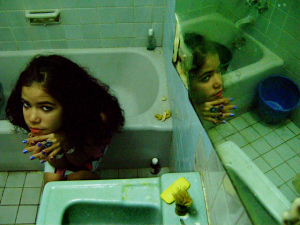A Spanish man born in Toledo, who was visiting Cuba for the first time in his life, told me about the two amazing weeks he had spent on the island. Seizing the opportunity to live like a Cuban, he got a first-hand experience of the Cuban reality.
His name was Frank. He said that during his stay he had not been to any tourist sight, avoided luxury hotels and refused to eat food reserved only for tourists. What he did was just the opposite: He travelled by public transport buses, crammed in the alley with locals, he took private taxis popularly known as “almendrones”, ate in private cafés and wandered through the poorest districts like “Diez de octubre”, “Alamar” or “San Agustín”. He said that he had the privilege of visiting very humble homes and meeting very simple people, who would be considered “extremely poor” in his country.

I asked him: “Of all you have seen during your two-week stay in Cuba, what was the thing that intrigued you most?” He gave me a quick answer: “The capitalist abundance side by side with the sad poverty of some districts. Shops are full to the brim with products from the West sold at truly alarming prices and people shop with a voracity that I have never seen anywhere else. During these 15 days, I kept asking myself, where does this purchasing power emerge and how can there be such a sharp contrast with the other Cuba – with the Cuba of poor districts?”
Frank also commented on the civic culture in Cuba: “Although Cubans show patterns of behaviour comparable to Europe, which can be seen as acceptable, I always felt as if I was talking to people forced to stay calm and silent at any cost. Before I travelled to Cuba, I got some good references from Spain and I also had first-hand information about Cuba from my wife, who is Cuban – we were travelling together. There is a strong difference in criteria: the left-wing part of the population speaks of prosperity, good education and free healthcare on the island, while the right wing claims quite the opposite, i.e., that there are many shortages and all kinds of problems. My journey gave me an opportunity to make my own opinion.
He told me that he went to the Baracoa beach: “A small beach with much dirt on the shore. Despite that, people bathed as if there was nothing wrong.” He also wanted to learn more about the prices on the black market, so he went and kept asking, trying to find answers to the many questions that kept emerging in his mind during his stay in Cuba. However, many of his worries have remained unexplained.
Frank believes that it takes time to get to know Cuba well. Two weeks haven’t been enough. “My visit to Cuba has left me with a desire to learn more, to discover the essence of the Cuban, which makes them wholly unique. That’s become my challenge. I’ve got to visit Cuba again.”

Leave a comment